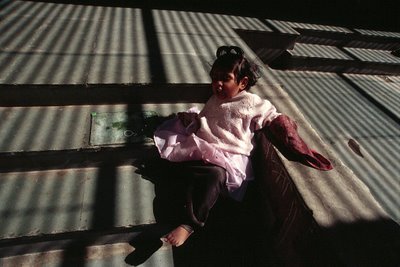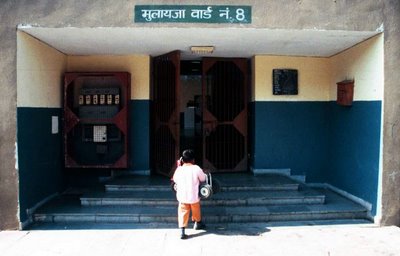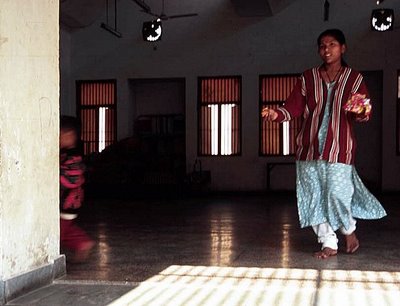
In India, a female prison inmate can keep her child with her in prison, till the child reaches five years of age. At Tihar Prison in Delhi, the children of various female inmates are educated, fed and looked after, often better than they would be on the "outside". This program besides looking after the children provides mothers in prison with purpose, love and something to do with their time.

Tihar Jail in New Delhi is one of the largest prison complexes in the world. Its 8 prison complexes house a population of about 13,100 prisoners against a capacity of 5,648. This prison population has about 518 women prisoners with about 40 children below 4 years of age.

I spent about a month in Tihar prison and some years later a month in an American supermax prison in Minnesota. http://ryanlobo.blogspot.com/2006/02/inside-supermax_18.html
The experiences were very different.
In Tihar, its mission as stated by the administration, is geared towards reform and reintegrating it’s prisoners into society upon release. Group therapy, a prisoner union of sorts and other efforts are geared towards increasing inmate participation in the affairs of prison administration and are used to reduce the barrier between inmates and the administration, in order to give inmates self-esteem, purpose, ambition and confidence.

In America, the administration semed more punitive and Calvinist in its approach. "You do the crime, you do the time." An "us and them" philosophy seemed to pervade the prison with over worked and seemingly underpaid guards doing the rounds. Inmates seemed more violent and restraining force was often used. In India as I experienced, prison is no fun either but there seems to be a much lower rate of recidivism and apparently, to me at least, a less violent prison population. However, though Tihar seems a success story there are many prisons in India where the conditions are appalling for both incarcerated mothers and children.

For inmates, life within prison traumatic and depressing. They are separated from their families and their self worth, reason for living and confidence is severely put to the test. In Tihar at least both mothers and children seem to benefit from this program. The social stigma of a prison term is often deeply debilitating.

According to anmerican Department of Justice study, about 2 million children have a parent in prison in the United States. Statistics show that many of them will be incarcerated as juvenile offenders, perpetuating a disturbing cycle of hopelessness and crime.In the U.S. children are taken away from imprisoned mothers, often permanantly . On India are allowed to keep their children with them till they are five years of age.
Tihar jail sets itself apart from other Indian jails as it provides facilities for its child "inmates" like education, good nutrition and a creche. NGO's like the India vision foundation involved themselves with these programs and once a child reaches five years of age, rather then be sent to a government run remand home where the conditions can be terrible, they are sent to the NGO's creche home. India vision trains women inmates in Tihar Prison to be Crèche workers. The crèche program concentrates on improving the nutrition and emotional, physical and mental health of the children.

In Tihar, children "enjoy" their mothers but its still within the walls of a high security prison. Those there since birth know of no other life. After the age of five, these children have to leave the prison for another home on the outside, a remand home, or be taken in by relatives. They are not free of dysfunctions, ill treatment or violence, but do not have to rely on a state run remand system thats inadequate, exploitative and often callous.





0 comments:
Post a Comment